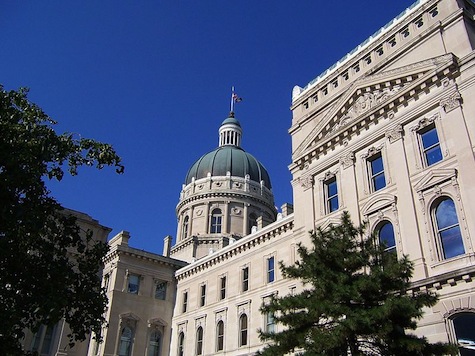 Education
Education
 Free Speech
Free Speech
In Indiana, Academic Freedom on the Horizon

Joshua Youngkin, Center for Science & Culture program officer in public policy and legal affairs, has an excellent op-ed in the Journal & Courier in Lafayette, Indiana (“The case for academic freedom on evolution and in science class“). The Darwin Brigade is gearing up for a fight in the state, hoping to stamp out interest in academic freedom before it gets out of control and a kid happens to learn something dangerous.
Our friends at the National Center for Science Education warn “Antievolution legislation on the horizon in Indiana,” though as we pointed out yesterday in reference to some hypothetical legislation in Montana, well framed laws protect teachers who want to “teach more about evolution than before academic freedom became state law, more than just one narrow view of what it is, how it works, what it can do, etc.”
Here’s Josh. (West Lafayette is the home of Purdue University, by the way; hence the reference.)
You can safely bet on this. If, as seems likely, a bill is proposed in the Indiana legislature next year that would allow public school students to hear both sides of the evolution debate, critics will distort the content of the law and the reasoning behind it.
You’ll hear that Discovery Institute, the education policy think tank where I’m a staff attorney, and its local allies seek to introduce “creationism” and “religion” in the science classroom. You will hear that this would cripple science education in the state — if it weren’t for the certainty that the law, if passed, would be struck down as unconstitutional.
I know you’ll hear these things because that is always what opponents of academic freedom say when the issue comes before state lawmakers.
What’s the truth? Discovery and innovation, in scientific and other fields, depend on academic freedom. That is why at Purdue University, for one example, the staff handbook promises professors “freedom of scientific inquiry” to “acquaint their students with the various sides of controversial subjects within their fields of subject-matter competency.”
The need for critical thinking and discernment in science, however, does not begin at the university level. At the latest it begins when students are first exposed to scientific controversies, in high school biology class. That is why Discovery Institute recommends to reform-minded school districts and lawmakers an academic freedom policy for responsible, limited use in the high school setting.
Such a policy, protecting teachers who introduce cutting-edge science — not religion — in their teaching, may come up for a vote by Indiana lawmakers in 2013. If the law passes, Indiana would join other states that have taken legislative action to guarantee academic freedom in public schools.
In 2008, Louisiana Gov. Bobby Jindal signed into law a bill based on Discovery Institute’s model academic freedom bill. In 2012, Tennessee likewise enacted a law based on Discovery Institute’s model bill. Would academic freedom be good for Hoosier teachers and students? This, in part, is what the Journal & Courier’s Dave Bangert wanted to know recently when he called me on the phone.
Go over there and read the rest.
Image: Indiana State House, Wikipedia.
